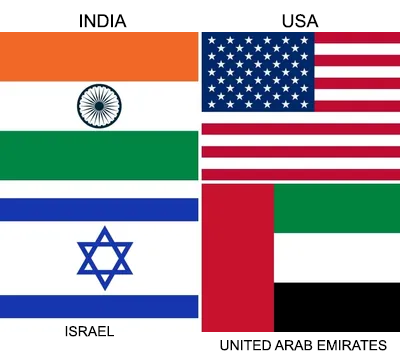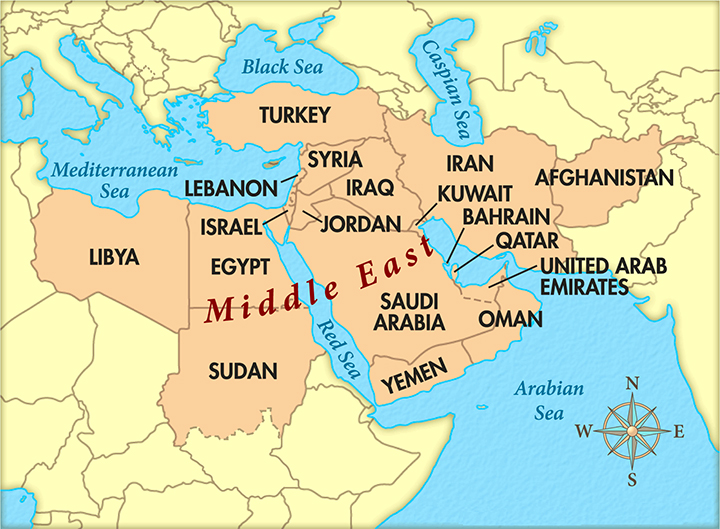International Relations
New Quad
- 22 Oct 2021
- 4 min read
Why in News
Recently, the Foreign Ministers of India, the US, Israel and the UAE concluded a virtual meeting. The meeting is a strong manifestation of the changes in West Asian geopolitics and formation of another Quad like grouping in the Middle East.
- India’s involvement in this new grouping reflects a shift in its foregin policy.
Key Points
- Factors Responsible for New Grouping:
- Abraham Accord: The new grouping is possible after the resumption of formal diplomatic relations between Israel and the UAE, through the Abraham Accord.
- Tackling Turkey’s Regional Dominance: The new Quad can be termed as a result of converging interests between India, the UAE, and Israel amidst Turkish president Recep Tayyip Erdogan’s assertive claims for the leadership of the Islamic world.
- US Pivot to Asia: The US is clearly seeking to lessen its footprint in the Middle East as part of its pivot to East Asia to tackle China’s rise, which is redrawing West Asia’s traditional equations.
- In order to contain rising China’s assertiveness, the US under its ‘pivot to Asia policy’ has launched Quad initiative, Indo pacific narrative.
- Significance for India:
- Shift Towards a Regional Approach: The four-nation meeting suggests India is now ready to move from bilateral relations conducted in separate silos towards an integrated regional policy.
- India’s Westward Shift: Much in the manner that the “Indo-Pacific” has transformed the way India thinks about the east, the notion of a “Greater Middle East” can provide a huge fillip to India’s engagement with the extended neighbourhood to the west.
- Tackling Pakistan: Further, the new grouping is also driven by Pakistan’s growing alignment with Turkey and its alienation from its traditionally strong supporters in the Arab Gulf - the UAE and Saudi Arabia.
- Deepening Relations: Over the years, India has built vibrant bilateral ties with all the countries in the new grouping.
- It is a member of the Quad with the US, Australia and Japan, which have common concerns and shared interests in East Asia.
- Israel is one of India’s top defence suppliers.
- The UAE is vital for India’s energy security and hosts millions of Indian workers.
Way Forward
- Too Early to Call: While it is too early to speak of the strategic significance of such a grouping, there are areas where it can deepen its engagement - trade, energy ties, fighting climate change and enhancing maritime security.
- Keeping Distance from Regional Rivalries: India should be careful not to get sucked into the many conflicts of West Asia that could intensify amid growing regional rivalries.
- Engaging With Iran: India is facing deepening insecurities in continental Asia after the American withdrawal from Afghanistan.
- So the challenge before India is to retain a healthy relationship with Iran even as it seeks to build a stronger regional partnership with the US-Israel-UAE bloc.






